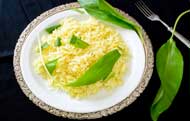





1. Lemon Facts
2. Types of Lemon
3. Nutritional Value of Lemon
4. Health Benefits of Lemon
The lemon (Citrus × limon) is a species of small evergreen tree in the Citrus genus of the flowering plant family Rutaceae. A true lemon is a hybrid of the citron and the bitter orange. Its origins are uncertain, but some evidence suggests lemons originated during the 1st millennium BC in what is now northeastern India. Some other citrus fruits are called lemon.
The yellow fruit of the lemon tree is used throughout the world, primarily for its juice. The pulp and rind are used in cooking and baking. The juice of the lemon is about 5–6% citric acid, giving it a sour taste. This makes it a key ingredient in drinks and foods such as lemonade and lemon meringue pie.
History and Origin
Lemons originated in the Himalayan region of India, northern Myanmar, or southern China, likely as a hybrid of the citron and bitter orange. They spread across the globe via trade routes, reaching the Roman Empire by the 1st century AD, the Islamic world by the 10th century, and the Americas in 1493 with Christopher Columbus.
- • Eureka
- • Lisbon
- • Meyer
- • Fino
- • Verna
- • Villafranca
- • Australian bush lemon
The main lemon types grown and sold in Australia are the Eureka, Lisbon, and Meyer varieties. Eureka and Lisbon are commonly sold in grocery stores and have a tangy, acidic flavour, while Meyer lemons are a cross between a lemon and an orange, with a sweeter taste and smaller, rounder shape.
Eureka: This is a very popular, high-yielding variety with a thin skin and tart, acidic juice, making it a staple for cooking and baking. It is productive and can fruit most of the year, with a main harvest in winter.
Lisbon: Often what people picture when they think of a lemon, Lisbon lemons are tangy and acidic and typically have a thick skin. They are robust and more cold-tolerant than Eureka lemons, making them suitable for a wider range of climates.
Meyer: This variety is a hybrid, thought to be a cross between a lemon and an orange or mandarin. It is more compact and bushier, producing smaller fruit with a sweeter, less acidic, and more floral flavory. Meyer lemons are a good choice for cooler climates and smaller gardens.
Other varieties: Other types grown on a smaller scale include Fino, Verna, and Villafranca. The native Bush Lemon also grows in subtropical Australia and has a thick skin and strong flavour.
Fruit ” Lemon ” ( Nutritional value )
Nutritional value per 100 g
Lemons, raw, without peel
|
Nutrient ( Proximate’s )
|
Unit
|
Value
|
Daily Value %
|
|
Energy
|
kcal
|
29
|
1.4%
|
|
Protein
|
g
|
1.10
|
2.2%
|
|
Total lipid (fat)
|
g
|
0.30
|
0.3%
|
|
Carbohydrate, by difference
|
g
|
9.32
|
3.3%
|
|
Fiber, total dietary
|
g
|
2.8
|
10%
|
|
Sugars, total
|
g
|
2.50
|
|
|
Minerals
|
|||
|
Calcium, Ca
|
mg
|
26
|
2%
|
|
Iron, Fe
|
mg
|
0.60
|
3.3%
|
|
Magnesium, Mg
|
mg
|
8
|
2%
|
|
Phosphorus, P
|
mg
|
16
|
1.2%
|
|
Potassium, K
|
mg
|
138
|
2.9%
|
|
Sodium, Na
|
mg
|
2
|
0.08%
|
|
Zinc, Zn
|
mg
|
0.06
|
0.5%
|
|
Copper, Cu
|
mg
|
0.037
|
4.1%
|
|
Manganese, Mn
|
mg
|
0.030
|
1.3%
|
|
Selenium, Se
|
mcg
|
0.4
|
0.7%
|
|
Vitamins
|
|||
|
Vitamin C, total ascorbic acid
|
mg
|
53.0
|
58.8%
|
|
Thiamin (B-1)
|
mg
|
0.040
|
3.3%
|
|
Riboflavin (B-2)
|
mg
|
0.020
|
1.5%
|
|
Niacin (B-3)
|
mg
|
0.100
|
0.6%
|
|
Pantothenic acid (B-5)
|
mg
|
0.190
|
3.8%
|
|
Vitamin B-6
|
mg
|
0.080
|
4.7%
|
|
Vitamin B-12
|
mg
|
0.00
|
|
|
Folate DFE (dietary folate) (B-9)
|
mcg
|
11
|
2.7%
|
|
Vitamin A, RAE (retinol)
|
mcg
|
1
|
0.1%
|
|
Vitamin E (alpha-tocopherol)
|
mg
|
0.15
|
1%
|
|
Vitamin D (D2 + D3)
|
mcg
|
0
|
|
|
Vitamin K (phylloquinone)
|
mcg
|
0.0
|
|
|
Lipids
|
|||
|
Saturated Fatty Acids
|
g
|
0.039
|
0.1%
|
|
Monounsaturated Fatty Acids
|
g
|
0.011
|
|
|
Polyunsaturated Fatty Acids
|
g
|
0.089
|
|
|
Trans Fatty Acids
|
g
|
0.000
|
|
|
Carotenoids
|
|||
|
Beta-Carotene
|
mcg
|
3
|
|
|
Alpha-Carotene
|
mcg
|
1
|
|
|
Beta-Cryptoxanthin
|
mcg
|
20
|
|
|
Lutein + zeaxanthin
|
mcg
|
11
|
|

|
Reference Values are based on a 2,000 Calorie Intake, for Adults and Children 4 or More Years of Age. Your daily values may be higher or lower depending on your calorie needs.
|
|
Percentages are roughly approximated using (RDA) Recommended Dietary Allowances for adults. Source: Nutrient Database – USDA (United States Department of Agriculture)
|
|
Reference Values for Nutrition – FDA U.S. Food and Drug Administration
|
Lemon Nutritional Value
Lemons are a good source of vitamin C and citric acid, offering benefits such as boosting the immune system, improving skin health, aiding digestion, and helping to prevent kidney stones. They also contain antioxidants and plant compounds that may reduce the risk of heart disease, anaemia, and certain cancers.
- AIDS DIGESTION
Lemon can aid digestion by stimulating gastric acid production, promoting the breakdown of food, and providing pectin fiber that aids regularity. Drinking lemon water before meals may help reduce bloating, gas, and constipation, though drinking too much can potentially cause issues like acid reflux or dental erosion. - ANTIOXIDANT PROPERTIES
Lemons have strong antioxidant properties due to their high content of vitamin C and flavonoids, such as hesperidin and eriocitrin. These compounds protect the body's cells from damage by neutralizing harmful free radicals. This antioxidant capacity can help reduce the risk of various health conditions and may have anti-inflammatory effects. - WOUND HEALING
Lemons can support wound healing due to their high vitamin C content, which promotes collagen production, and the antimicrobial properties of their essential oils and citric acid. Applying diluted lemon oil may help sanitize minor wounds, while consuming vitamin C-rich foods like lemons can boost the immune system and support the healing process overall. - IRON ABSORPTION
Vitamin C in lemons (and other vitamin C-rich foods) enhances the body's absorption of non-heme iron, the type of iron found in plant-based foods. It does this by converting iron into a more absorbable form and helping to overcome inhibitors present in some plant foods. - IMMUNE SUPPORT
Lemons are rich in vitamin C, which supports the immune system, promotes wound healing, and acts as an antioxidant. A single raw lemon provides a significant portion of the recommended daily intake of vitamin C.

- SUPPORTS HEART HEALTH
Lemon’s support heart health due to their vitamin C, flavonoids, and other plant compounds, which can help lower risk factors for heart disease, such as high blood pressure and bad cholesterol. These compounds, particularly flavonoids, have antioxidant and anti-inflammatory effects and can improve blood vessel function. - MAY HELP PREVENT KIDNEY STONES
Citrate, a salt in citric acid, binds to calcium and helps block stone formation. "Studies have shown that drinking 1/2 cup of lemon juice concentrate diluted in water each day, or the juice of two lemons, can increase urine citrate and likely reduce kidney stone risk. - HYDRATION AND WEIGHT MANAGEMENT
Lemon water supports hydration and weight management by being a low-calorie alternative to sugary drinks, helping you stay hydrated which can boost metabolism and aid fat loss, and providing vitamin C. While it isn't a miracle cure, it can be a helpful part of a larger weight management strategy that includes a balanced diet and regular exercise. - MAY REDUCE THE RISK OF CANCER
Studies indicate that citrus fruits, including lemons, contains compounds that may be beneficial in preventing or combating some types of cancer. However, the myth significantly exaggerates the potential of lemons and lemon juice as a cancer remedy. - ANTIBACTERIAL PROPERTIES
Lemons have antibacterial properties due to their high acidity, which is mainly caused by citric acid, and other compounds like flavonoids and terpenes. These components can inhibit bacterial growth by disrupting the cell membrane and lowering the internal pH of bacterial cells.
References
Nutrient Database – USDA (United States Department of Agriculture)
Reference Values for Nutrition – FDA U.S. Food and Drug Administration
Immune support - Lemons are rich in vitamin C, which supports the immune system, promotes wound healing, and acts as an antioxidant. A single raw lemon provides a significant portion of the recommended daily intake of vitamin C.
Antioxidant properties - Lemons have strong antioxidant properties due to their high content of vitamin C and flavonoids, such as hesperidin and eriocitrin. These compounds protect the body's cells from damage by neutralizing harmful free radicals. This antioxidant capacity can help reduce the risk of various health conditions and may have anti-inflammatory effects.
Wound healing - Lemons can support wound healing due to their high vitamin C content, which promotes collagen production, and the antimicrobial properties of their essential oils and citric acid. Applying diluted lemon oil may help sanitize minor wounds, while consuming vitamin C-rich foods like lemons can boost the immune system and support the healing process overall.
Iron absorption - Vitamin C in lemons (and other vitamin C-rich foods) enhances the body's absorption of non-heme iron, the type of iron found in plant-based foods. It does this by converting iron into a more absorbable form and helping to overcome inhibitors present in some plant foods.
May help prevent kidney stones - Citrate, a salt in citric acid, binds to calcium and helps block stone formation. "Studies have shown that drinking 1/2 cup of lemon juice concentrate diluted in water each day, or the juice of two lemons, can increase urine citrate and likely reduce kidney stone risk.
Supports heart health - Lemon’s support heart health due to their vitamin C, flavonoids, and other plant compounds, which can help lower risk factors for heart disease, such as high blood pressure and bad cholesterol. These compounds, particularly flavonoids, have antioxidant and anti-inflammatory effects and can improve blood vessel function.
Aids digestion - Yes, lemon can aid digestion by stimulating gastric acid production, promoting the breakdown of food, and providing pectin fiber that aids regularity. Drinking lemon water before meals may help reduce bloating, gas, and constipation, though drinking too much can potentially cause issues like acid reflux or dental erosion.
Hydration and weight management - Lemon water supports hydration and weight management by being a low-calorie alternative to sugary drinks, helping you stay hydrated which can boost metabolism and aid fat loss, and providing vitamin C. While it isn't a miracle cure, it can be a helpful part of a larger weight management strategy that includes a balanced diet and regular exercise.
May reduce the risk of cancer - These studies indicate that citrus fruits, including lemons, contains compounds that may be beneficial in preventing or combating some types of cancer. However, the myth significantly exaggerates the potential of lemons and lemon juice as a cancer remedy.
Antibacterial properties - Lemons have antibacterial properties due to their high acidity, which is mainly caused by citric acid, and other compounds like flavonoids and terpenes. These components can inhibit bacterial growth by disrupting the cell membrane and lowering the internal pH of bacterial cells.
